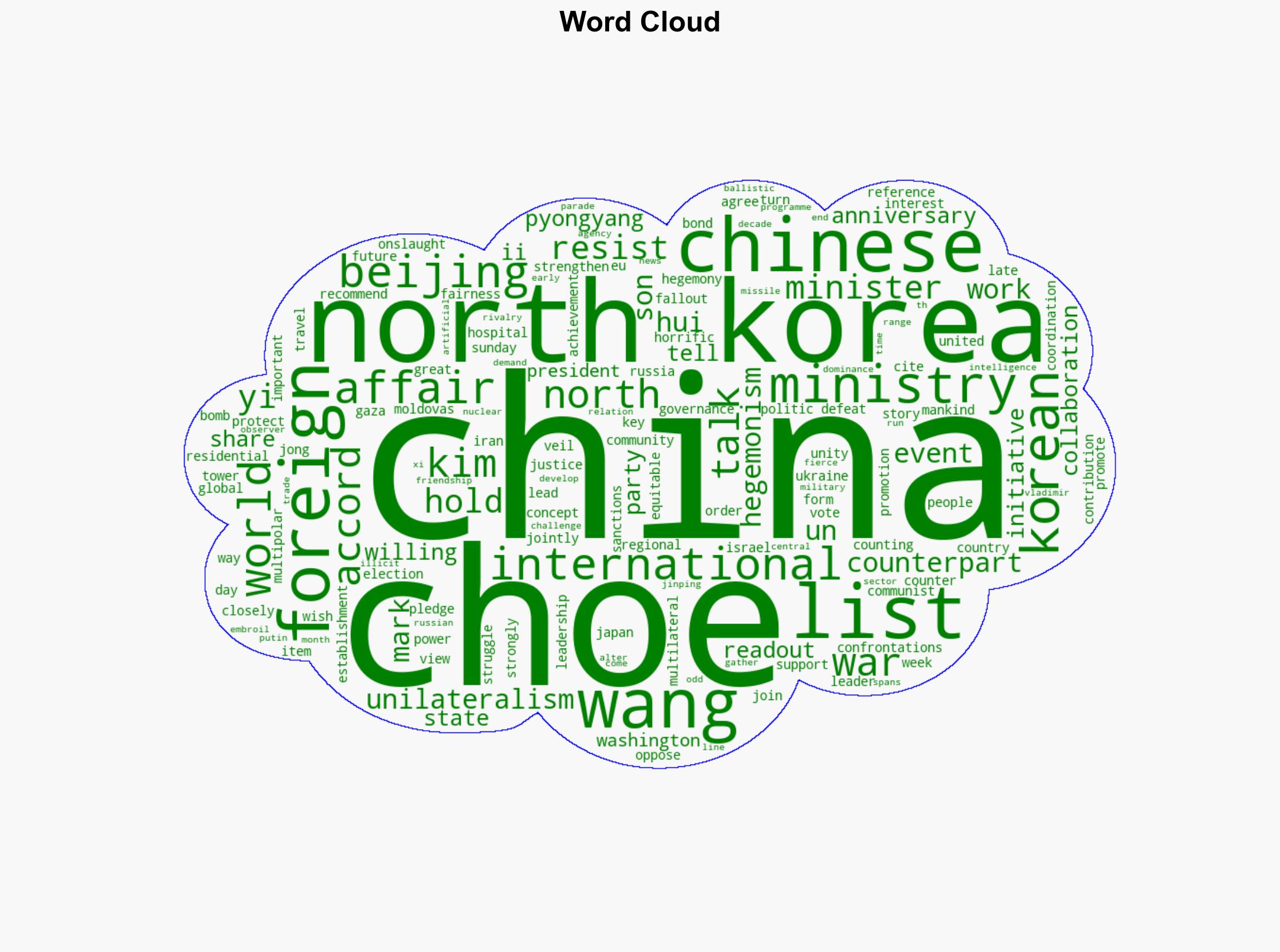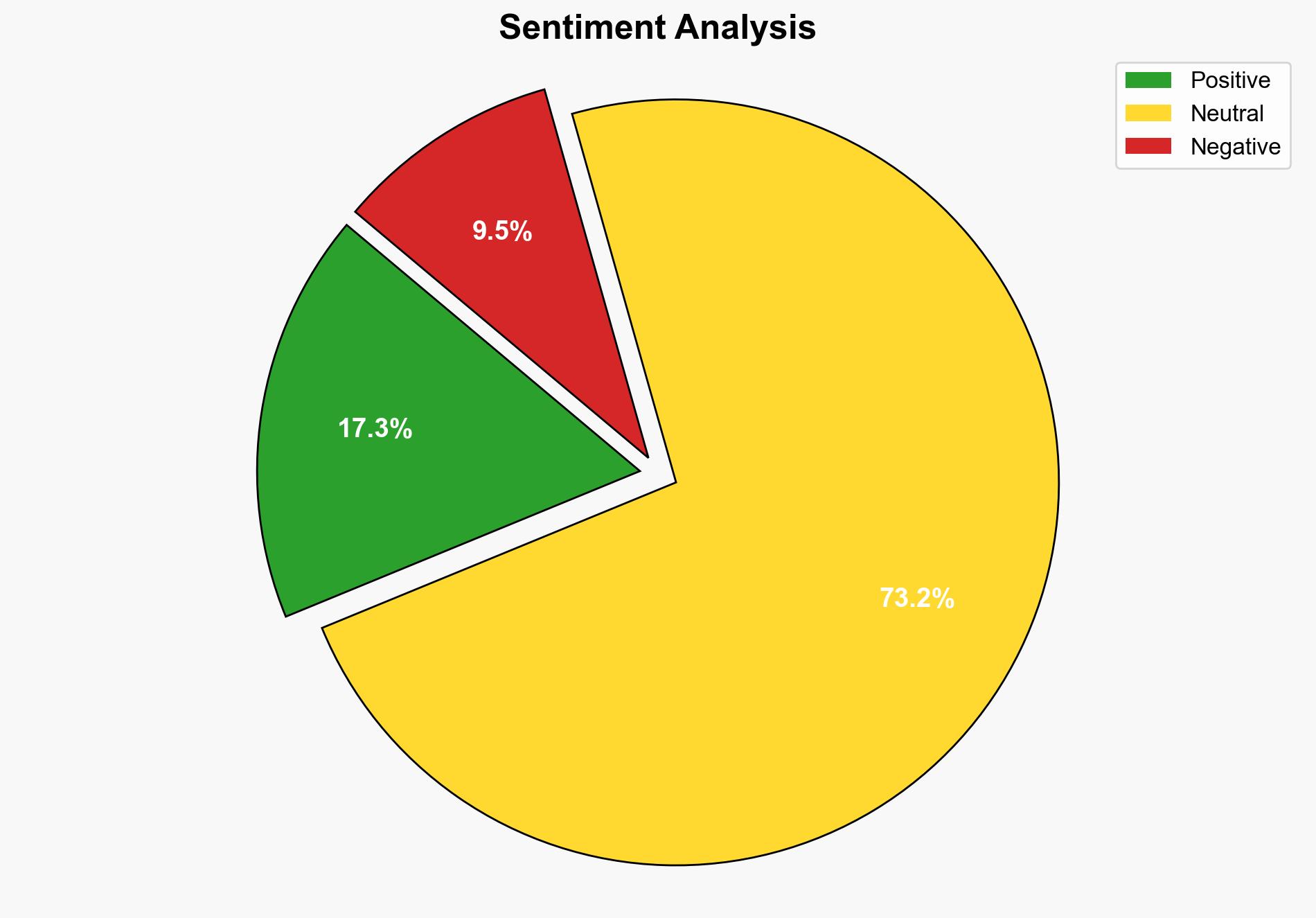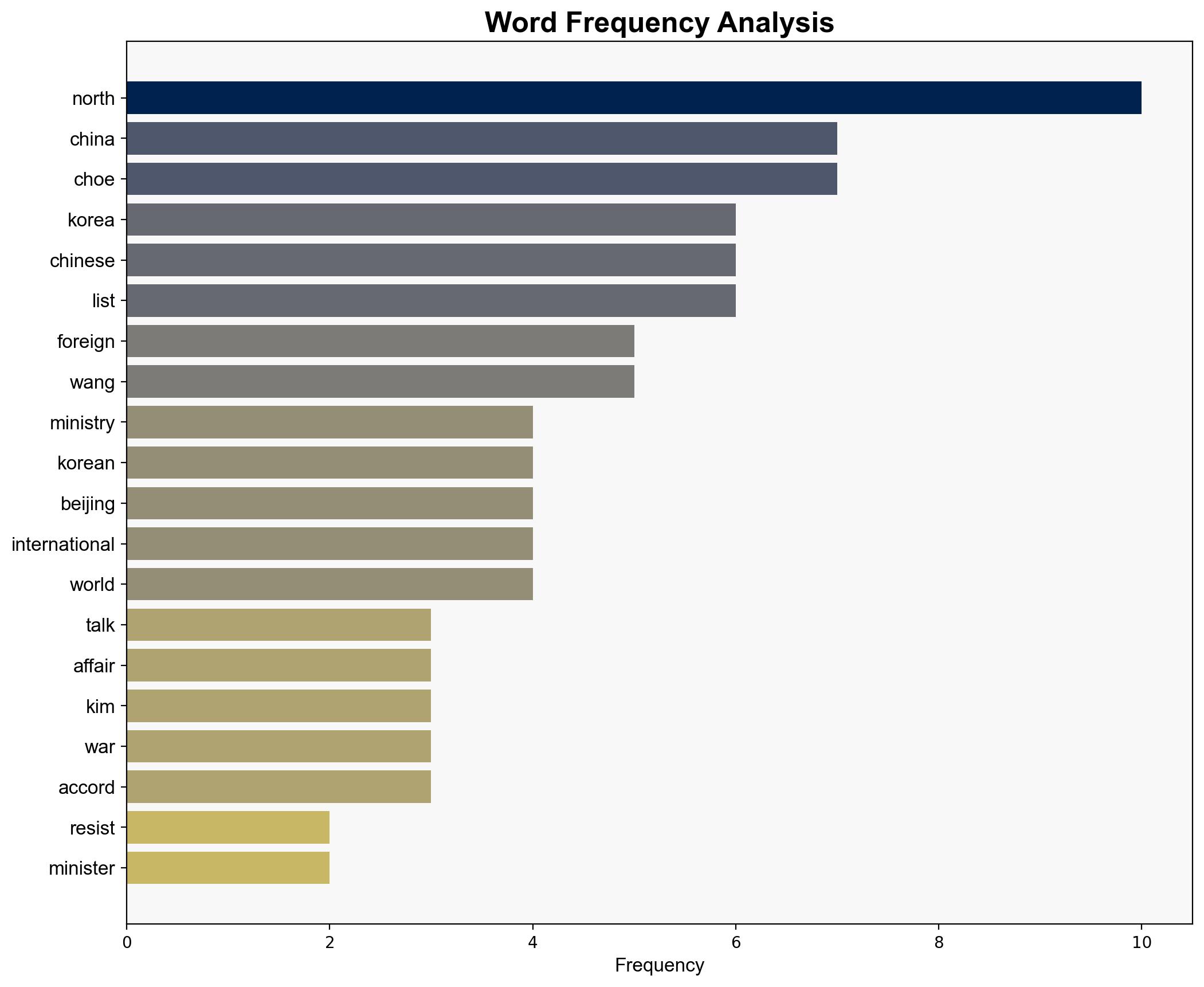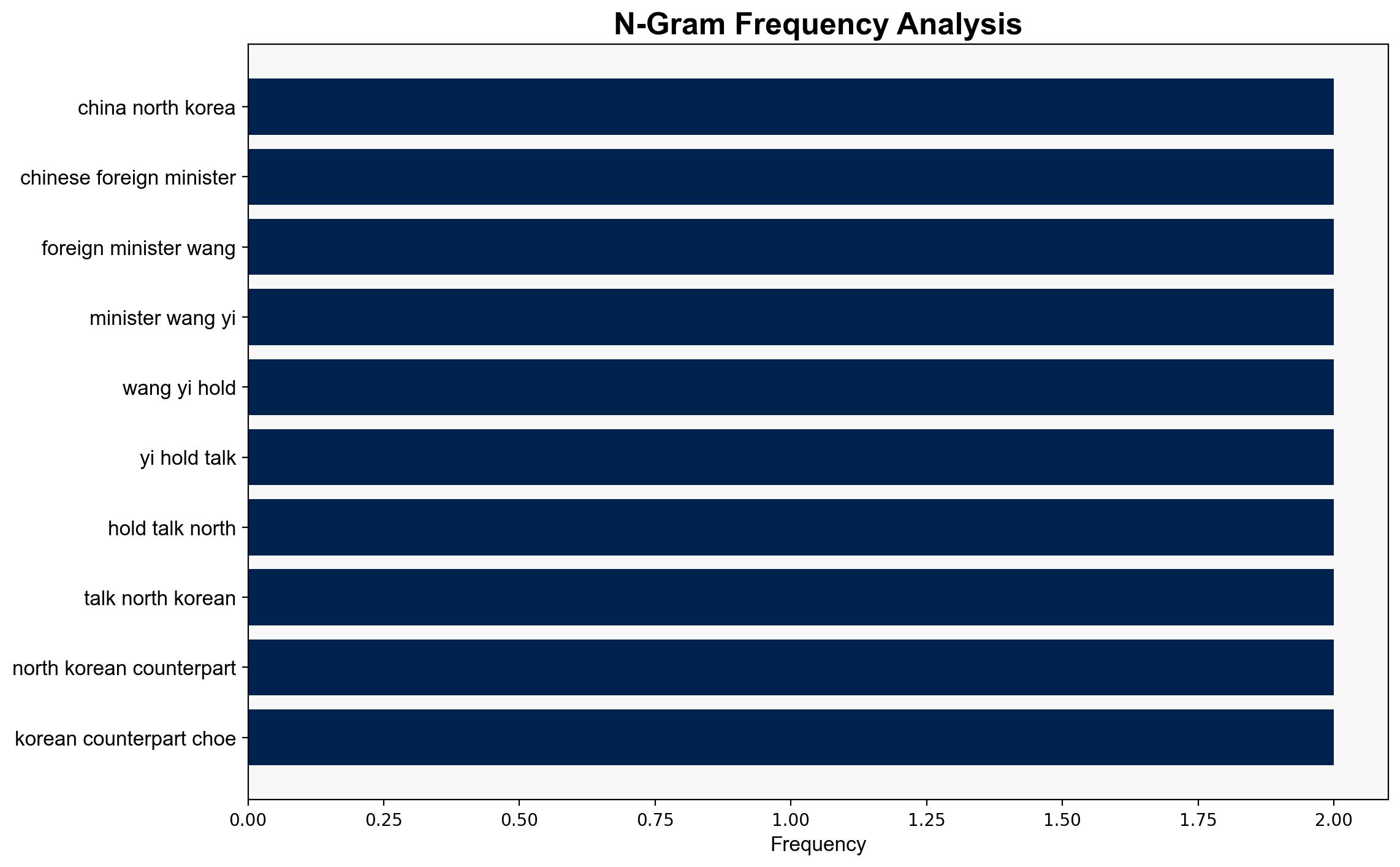China and North Korea agree to resist hegemony Foreign Ministry says – Al Jazeera English
Published on: 2025-09-29
Intelligence Report: China and North Korea agree to resist hegemony Foreign Ministry says – Al Jazeera English
1. BLUF (Bottom Line Up Front)
China and North Korea’s agreement to resist “hegemonism” signals a strategic alignment against perceived U.S. influence. The most supported hypothesis is that this alliance aims to counterbalance U.S. geopolitical dominance, with a moderate confidence level due to the opaque nature of diplomatic communications. Recommended action includes enhancing diplomatic engagement with regional allies and monitoring Sino-North Korean activities for shifts in military or economic strategies.
2. Competing Hypotheses
1. **Strategic Alliance Against U.S. Influence**: China and North Korea are strengthening ties to form a united front against U.S. geopolitical influence, particularly in response to U.S. military presence in the Asia-Pacific region.
2. **Symbolic Gesture with Limited Practical Impact**: The agreement is primarily a symbolic gesture to reinforce diplomatic ties without significant changes in their strategic or military postures.
3. Key Assumptions and Red Flags
– **Assumptions**: The first hypothesis assumes China and North Korea have aligned strategic interests that outweigh their historical tensions. The second assumes that both nations are primarily focused on domestic stability rather than external aggression.
– **Red Flags**: The lack of specific commitments or actions in the public readout raises questions about the depth of this agreement. Additionally, the timing of the announcement, coinciding with regional tensions, suggests potential opportunism.
4. Implications and Strategic Risks
– **Geopolitical**: A stronger Sino-North Korean alliance could destabilize regional power dynamics, potentially prompting increased U.S. military presence or alliances in the region.
– **Economic**: Enhanced cooperation could lead to increased economic exchanges, potentially circumventing international sanctions on North Korea.
– **Cybersecurity**: Joint efforts could extend to cyber operations, posing risks to regional cybersecurity.
5. Recommendations and Outlook
- Enhance intelligence-sharing with regional allies to monitor developments.
- Engage in diplomatic dialogues with China and North Korea to clarify intentions and reduce tensions.
- Scenario Projections:
- **Best Case**: The agreement remains symbolic, with no significant shifts in regional stability.
- **Worst Case**: Increased military cooperation leads to heightened tensions and potential conflict.
- **Most Likely**: Continued diplomatic posturing with incremental economic and military cooperation.
6. Key Individuals and Entities
– Wang Yi
– Choe Son Hui
– Kim Jong Un
– Xi Jinping
– Vladimir Putin
7. Thematic Tags
national security threats, geopolitical strategy, regional alliances, U.S.-China relations





